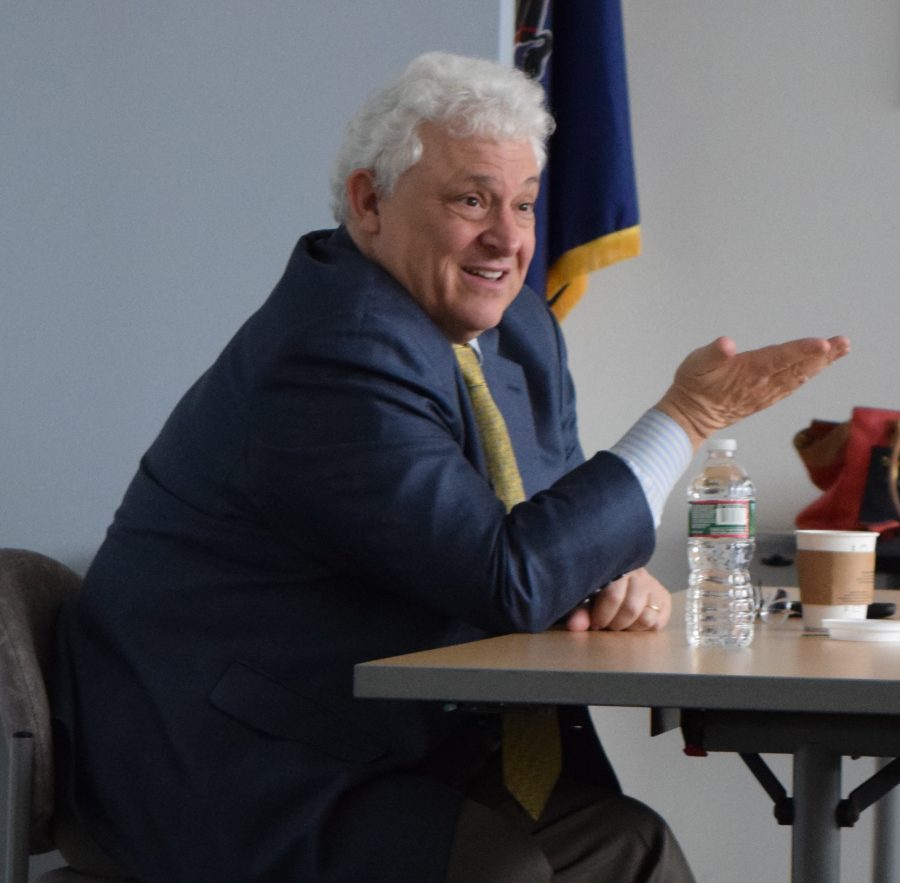Arthur Caplan Discusses Bioethics as Part of ‘Deadly Medicine’ Series
Bioethicist Dr. Arthur Caplan gave students a master class as part of the “Deadly Medicine” speaker series.
The class was open for any student to sign up so they may attend, but due to limited seating it was on a first-come-first-served basis.
The Bioethics class dealt with timely issues surrounding brain trauma.
Dr. Amanda Caleb, an English professor and co-coordinator of the program explained that bioethics is the ethics of medical/health care and biomedical experimentation.
She said it is interdisciplinary, drawing on history, philosophy and religion as applied to medicine.
Bioethics are guided by four principles: respect for autonomy, which is the patient’s right to make decisions, non-maleficence, which means the procedure cannot cause harm, beneficence, which is helpful intent, and justice, which concerns many issues, including equal access to care, Caleb said.
The master class focused on issues related to sports ethics and brain trauma. Caplan discussed representations of brain trauma in various media formats and related those representations to issues in sports today, particularly the NFL and concussions.
He addressed the use of team doctors, which may present ethical issues if they are athletes’ sole providers. The question arises as to whether they are doctors first or employees of the team or NFL.
The relevance of brain trauma due to sports-related injuries is particularly timely today.
“Because concussions have been in the news so much, it’s a topic that many people know about and perhaps have an opinion about,” said Caleb. “In considering how media representations of brain trauma might skew our understanding of actual brain trauma, combined with the issue of fan support and ‘love’ of a sport, the master class will help students realize the impact of information manipulation in how we make our own ethical determinations. Such critical thinking is essential today with claims of ‘fake news’ and information overload via social media.”
Caplan also gave a lecture in the Lemmond Theater, which addressed access to experimental medicine and treatments for terminally ill patients. Experimental medicine is outside of Food and drug Administration regulations.
While Caplan’s class and lecture addressed the topic of bioethics, the approach was fundamentally different in each..
“While neither the master class nor the lecture are about the Holocaust or Nazi doctors, and are therefore very different from the other Deadly Medicine talks, they are relevant to a broader discussion of ethical patient care and ethics in experimental treatments,” Caleb said.
Aspects of the Master Class appealed to students who have spent time in the healthcare field, such as Karen Reilly, an English Major and medical health humanities minor.
“I think that end-of-life issues are very interesting because I was a nurse over 30 years, so I’ve seen many different ways it was handled,” said Reilly.
The “Deadly Medicine” series will continue through March 14.

